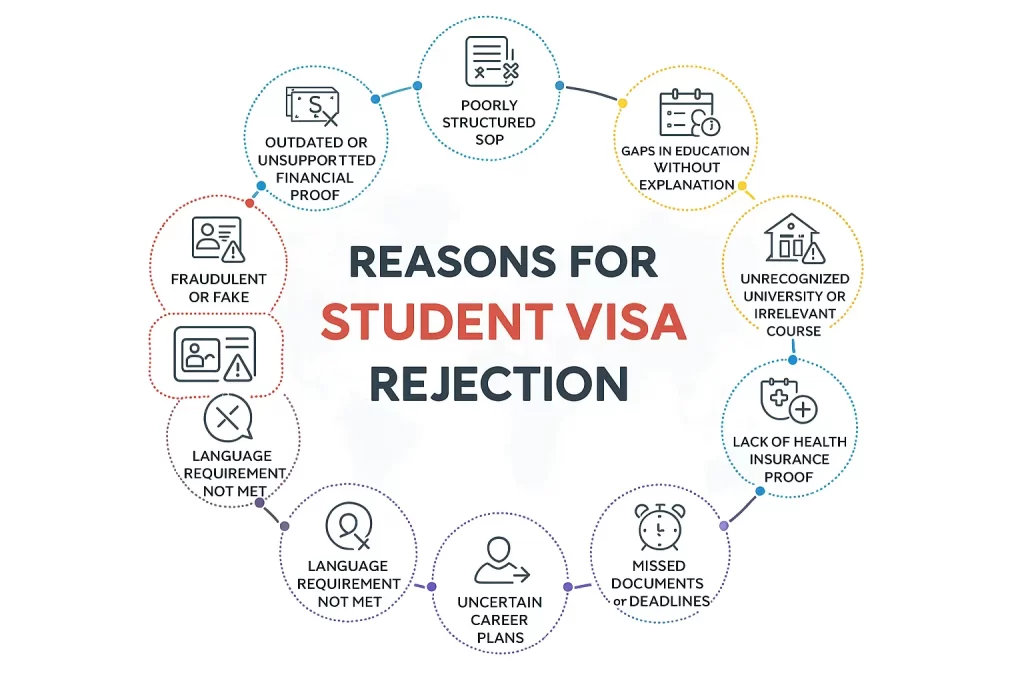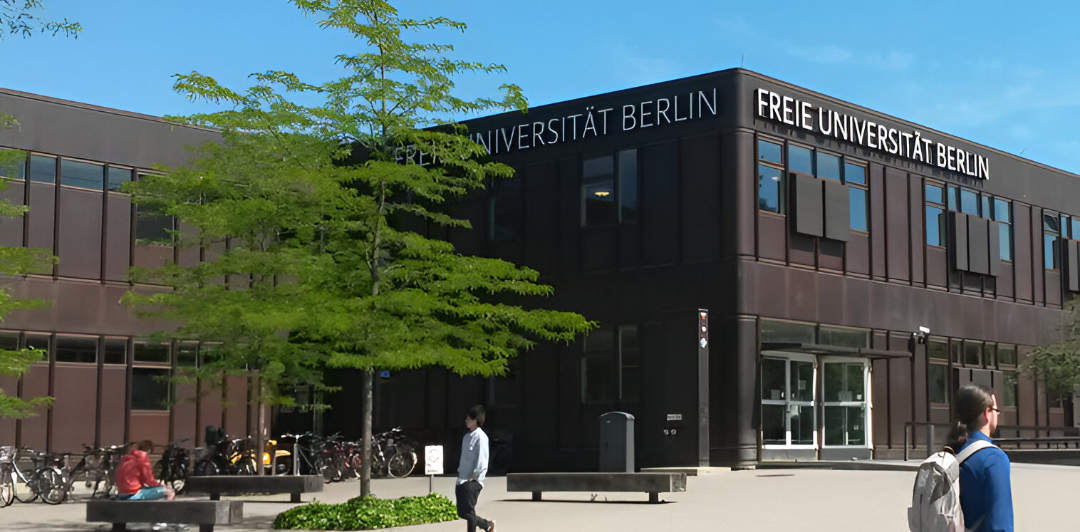Germany, known for its prominent corporations and thriving economy, remains a highly desirable destination for various purposes, including tourism, education, and business endeavours. Numerous enterprises and individuals opt to visit Germany to explore its lucrative business prospects. While some business activities may not require a visa, there are situations where obtaining a business visa becomes necessary, particularly for attending annual meetings, conferences, seminars, or engaging in other business-related commitments.
In this comprehensive article, we will delve into the crucial subject of securing a business visa for Germany. We will thoroughly examine the essential criteria, eligibility prerequisites, and the step-by-step application process. By comprehending the intricacies of obtaining a business visa, both individuals and organisations can confidently navigate the mandatory procedures and ensure adherence to the stringent regulations mandated by German authorities.
What is a Business Visa to Germany?
A specific category within the Schengen visa framework, the business visa for Germany enables individuals to enter and sojourn in the country for a period of up to 90 days within six months unless stipulated otherwise on the visa label. This particular visa is granted to those who intend to engage in business-related pursuits such as attending business meetings, participating in contract signings, and undertaking similar professional endeavours in Germany.
Who requires a Business Visa to Germany?
The necessity of obtaining a Business Visa for Germany primarily hinges on your nationality, as it is a short-stay visa. Presently, the visa-waiver program includes 62 countries, whose citizens are exempted from holding this visa to enter Germany and the broader Schengen Area. For those outside the visa-waiver program, securing a Business Visa becomes essential to gain entry to Germany and the Schengen Area at large.
Document Requirements
To apply for a German Business visa, you will need to provide the following documents:
- Completed and signed visa application form.
- Two recent passport-sized photos that meet the German visa photo requirements.
- Valid passport with a validity of a minimum of three months beyond your planned departure date from Germany.
- Round trip reservation or itinerary, which includes flight details that indicate dates of entry and exit from Germany.
- Travel insurance policy that covers medical emergencies, illnesses, accidents, and repatriation with a minimum coverage of 30,000 euros for Germany and the Schengen territory. DR-WALTER or Europ Assistance state travel health insurance policy requirements for German Visa requirements.
- Proof of accommodation, such as hotel bookings, rental agreements, or an invitation letter from your host in Germany.
- German visa fee payment receipt or any other proof.
- Cover letter explaining the purpose of your visit to Germany.
Current workplace profile proof.
- A No objection certificate from your current employer.
- Invitation letter from the partner company in Germany, faxed to the German consulate, stating the purpose of the visit, trade or industry relevance, and event details.
- Evidence of Sufficient Funds: To provide proof of financial means, you can present bank account statements that are recent and within the last three months. Alternatively, a sponsorship letter endorsed by the sponsor’s bank statement can be submitted as well. Another option is to provide a combination of both bank account statements and a sponsorship letter to demonstrate your financial stability. Ensuring that the documentation accurately reflects your financial resources will contribute to a successful visa application process.
- Confirmation of Sufficient Funds: It is necessary for either the employer’s letter or the partner company’s invitation to specify that either party will be responsible for the applicant’s travel expenses during their stay in Germany. As per the guidelines provided by the European Commission, foreign applicants seeking a German Visa must be able to demonstrate possession of 45€ per day for the entire duration of their stay in Germany to the German Embassy or Consulate.
- For any previous trade relations between the companies, provide proof of such events.
- For employees: employment contract, current bank statements for the past six months, leave permission from the employer, and income tax return documents or certificates.
- For the self-employed: copy of your business licence, company bank statements for the past six months, and income tax return documents.
When you apply for your Business Visa, ensure all the required documents are prepared and submitted accurately for a smooth visa application process.
Application Process
The process for obtaining a business visa to Germany involves the following straightforward steps:
 In the country of your residence, schedule an appointment at the German Embassy, Consulate, or at the Visa Center.
In the country of your residence, schedule an appointment at the German Embassy, Consulate, or at the Visa Center. As per the above stated requirements, gather all the necessary documents.
As per the above stated requirements, gather all the necessary documents. Attend a visa interview at your designated location.
Attend a visa interview at your designated location. Pay your visa application fee and retain proof of payment confirmation receipt.
Pay your visa application fee and retain proof of payment confirmation receipt. Await response from the German Embassy or Consulate regarding your visa application status.
Await response from the German Embassy or Consulate regarding your visa application status.
Fees
The cost of the German business visa amounts to €80. It is essential to retain the payment confirmation securely. Please be aware that visa fee refunds are not provided in the event of visa rejection.
Processing Time for a Business Visa to Germany: What to Expect?
The processing time for a German business visa typically takes up to two weeks. However, the duration may vary based on the workload of the specific German Embassy/Consulate where you submitted your application. To ensure a smooth processing and to avoid any potential delays, it is advisable to submit your application well in advance, as early as 6 months before your planned travel date to Germany.
Validity Period of the German Business Visa: Duration and Entry Conditions Explained.
The German short-stay business visa typically allows for a stay of up to 90 days within a 6-month period, unless specified otherwise on the visa sticker affixed to your passport. It can be issued for single, double, or multiple entries into the Schengen area, as indicated on the visa sticker under “Number of Entries.”
Depending on the permitted number of entries indicated on your visa sticker, you can enter Germany and stay for 90 days continuously, or make two or three entries within the “90 days within 180 days” rule without exceeding the allowed duration.
However, it’s important to note that while the standard validity of a German short-stay business visa is 90 days, the actual duration granted may vary based on individual circumstances. The German authorities will assess and determine the necessary period for your stay in Germany accordingly.
Amratpal a Vision: A name for excellence in Germany Visa Success.
At Amratpal, we take pride in our exceptional track record with a 100% success rate in securing visas for Germany. With our unwavering commitment to excellence, we have successfully placed over 700 students in Germany, and our numbers continue to grow rapidly. Our success can be attributed to our deep understanding of the visa application process, meticulous attention to detail, and personalised approach to each case.
We are renowned for providing a seamless and efficient experience to our clients, ensuring quick turnaround times in processing visa applications. Our team of experienced professionals works diligently to navigate the complexities of the visa process, making the dream of studying in Germany a reality for countless students. At Amratpal, we are driven by our vision to empower individuals to achieve their academic and career aspirations in Germany, and we strive to maintain our reputation as a trusted partner in visa assistance.
















 In the country of your residence, schedule an appointment at the German Embassy, Consulate, or at the Visa Center.
In the country of your residence, schedule an appointment at the German Embassy, Consulate, or at the Visa Center. As per the above stated requirements, gather all the necessary documents.
As per the above stated requirements, gather all the necessary documents. Attend a visa interview at your designated location.
Attend a visa interview at your designated location. Pay your visa application fee and retain proof of payment confirmation receipt.
Pay your visa application fee and retain proof of payment confirmation receipt. Await response from the German Embassy or Consulate regarding your visa application status.
Await response from the German Embassy or Consulate regarding your visa application status.